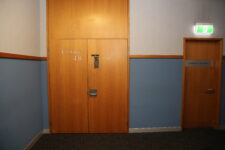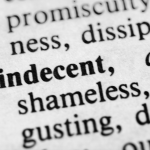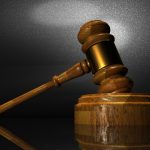What is a Defended Hearing in New South Wales?

Australian actor Craig McLachlan has been found not guilty of 13 criminal charges, stemming from allegations made by four fellow cast members of The Rocky Horror Show.
Mr McLachlan, probably best known for his television roles in Neighbours, Home and Away and the Dr Blake Mysteries, steadfastly maintained his innocence from the time the charges were brought, pleading not guilty to all counts of common assault and indecent assault.
The charges related to allegations that McLachlan touched one woman near her genitals during a live performance of the Rocky Horror Show, that he forced his tongue into another woman’s mouth during an unscripted kiss, and that he twice kissed another co-star when backstage.
He was also accused of running his hand up the leg of a fourth woman while she was performing in a scene and was hidden from the audience.
Police asserted that the actor conducted himself in a predatory fashion towards his co-stars and took advantage of a power imbalance, and that he exploited their vulnerability, given the scenes the women were in.
Two charges were dismissed earlier this year, but 13 remained in place and the matter was set down in late 2019 for a defended hearing.
The initial hearing was vacated due to COVID-19, but ultimately took place before Magistrate Wallington in Melbourne Magistrates Court earlier this week via audio visual link.
Mr McLachlan denied that some of the incidents occurred, while asserting that others were consensual, or in the spirit of the show itself. His criminal defence lawyers submitted that the actor was given license to improvise during the performances, and that some of the alleged offences occurred in this context.
In the result, her Honour found that the prosecution had failed to prove any of the charges beyond a reasonable doubt and dismissed all of them.
Defamation proceedings
The actor previously commenced proceedings for defamation against several media organisations, including The Age, The Sydney Morning Herald, the ABC and one of the women over news reports in relation to the allegations in 2018.
The proceedings were adjourned pending the outcome of the criminal case, but are expected to now recommence.
Summary, Table and Strictly Indictable offences in NSW
When a person is charged with a less-serious offence, known as a ‘summary offence’, the case is finalised in the Local Court rather than being referred to a higher court such as the District or Supreme Court.
In New South Wales, a summary offence is generally one which carries a maximum penalty of two years or less in prison.
In many cases where a charge is more serious – such as the offence of indecent assault which in NSW carries a maximum penalty of 5 years in prison – the prosecution can elect (choose) whether to have the charges remain in the Local Court or to refer them to a higher court.
These charges are known as Table 1 and Table 2 offences. It is only strictly indictable offences such as murder and sexual assaults that must be finalised in a higher court.
Sentencing hearings
If the defendant pleads guilty, the matter will proceed to what is known as a ‘sentencing hearing’ – which is when the defence hands-up subjective materials to the court such as character references and a letter of apology, and makes verbal submissions to put the offence in context, outline mitigating factors (which are factors that reduce the seriousness of the offending conduct) and press for the most lenient outcome.
The magistrate then imposes the penalty he or she feels is appropriate in all of the circumstances.
What is a defended hearing in New South Wales?
If the defendant pleads not guilty, and the prosecution refuses to withdraw the charges, the case will eventually proceed to what is known as a ‘defended hearing’.
This is the court date where the prosecution bring its witnesses to court – whether alleged eye-witnesses, police officers who attended the scene or were otherwise involved, any experts etc – and presents its case to the magistrate.
The process involves the prosecutor (who may be a police prosecutor, RMS prosecutor or solicitor from the Office of the Director of Pubic Prosecutions) will call its witnesses one-by-one to the witness stand to give testimony. The defence lawyer will have the opportunity to cross-examine each of these witnesses.
Once all of the prosecution witnesses have testified, the defence may consider making a ‘no prima facie case submission’ – which is a verbal submission to the court to the effect that the evidence presented is not capable of proving each element (or ingredient) of the offence beyond a reasonable doubt.
If the magistrate accepts that submission, the charges will be dismissed at this point and the defendant discharged.
If the case proceeds past that point, the defence may consider calling witnesses – such as the defendant or any others – to the witness stand to testify.
It is important to note that the defence does not have an obligation to call witnesses, and if the defence lawyer is of the view the prosecution has not proven its case to the required standard of ‘beyond a reasonable doubt’ the lawyer may choose not to call witnesses and instead rely on his or her closing argument.
If the defence feels the need to call a witness or witnesses, they will be called to the witness stand one at a time and taken through their testimony. The prosecutor will then have an opportunity the cross examine the witnesses.
Once this process has been completed, the prosecution and defence will each have an opportunity to make closing statements – emphasising the strong elements of their cases and pointing out the deficiencies, inconsistencies or other weaknesses of their adversary’s case.
After this is done, the magistrate will deliver his or her judgment of guilty or not guilty in respect of each of the charges that have been brought.
If the judgement is not guilty, the charges will be dismissed and the defendant discharged.
If the verdict is guilty, the matter will proceed to a sentencing hearing (outlined above) either on that day or on another date set by the court.
Going to court for a defended hearing?
If you have been accused of a criminal offence and wish to plead not guilty, call Sydney Criminal Lawyers on 9261 8881 to arrange a free first conference with a specialist criminal defence lawyer who is vastly experienced in preparing and executing effective defence strategies, and who has an exceptional track record of winning defended hearings.








